2024 Child Welfare Reform Legislative Highlights: How Key States Are Shaping the Future
2024 has been another big year for state action on child welfare. So far, about 38 states have passed almost 200 bills related to child welfare in some way. With most legislative sessions wrapped up for the year, let’s take a look at the legislative highlights that align with the Safe Babies Policy Framework, our recommendations for building a child welfare system transformed by the principles of family strengthening and child development.
While our framework includes policies that create a child and family well-being system that helps all families thrive, we will focus primarily on state actions that specifically address child welfare systems given the unique role the Safe Babies program plays at the nexus of child welfare and early childhood promotion.
Health & Family Strengthening
Good health—including physical and mental health—provides the foundation for babies to develop physically, cognitively, emotionally, and socially, and parental health is a key foundation for infants’ and toddlers’ health. Access to health care, insurance coverage, and services to treat mental and physical health needs for the entire family is important to promoting optimal infant development and preventing child welfare involvement.
HB 2002 provided grants to community-based programs to prevent child abuse and neglect and divert children from entering child protective custody. These grants fund local and state home visiting programs, safe sleep education, child care planning, and other prevention activities.
HB 3367 expanded the state’s Children’s Specialty Plan, which covers Medicaid services other than dental care for children in foster care, to include children involved in a Family Centered Services case or are placed at home under court supervision or trial reunification plan. The bill also expands the plan to Medicaid-enrolled parents and guardians of certain children.
HB 2256 expanded the scope of the Children and Youth Behavioral Health Work Group to strengthen and build a coordinated systemic approach to providing behavioral health care and supports so all children and their families have timely access to high quality behavioral health care and supports across the continuum. The group includes child welfare system-involved families and care providers.
Policy Framework
Section 1: Create a child and family well-being system that helps all families thrive

Policy Framework
Policy 4: Build community-level systems that provide a comprehensive continuum of supports to families through enhanced coordination and access to resources and services for families
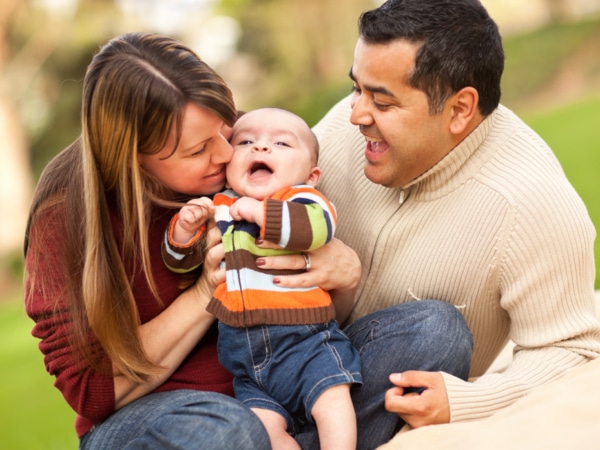
Mandatory Reporting
Recent national discussions have highlighted concerns about the potential harms of child welfare system involvement, particularly the stress and disruption it can cause for families. In response, some states are examining their mandatory reporting processes to reduce unnecessary investigations, minimize trauma, and support family well-being while ensuring child safety.
SB 3136 directed the state to replace punitive reporting policies for substance exposed infants by separating the federally required Child Abuse Prevention and Treatment Act (CAPTA) notification from a report of child abuse, instead focusing on implementing family recovery plans. Now, notifications will be separate and distinct and will not be treated as a report of suspected child abuse or neglect. Additionally, newborns born with any amount of a controlled substance were previously presumed neglected or abused; this new law changes that.
Kinship Care
When children are removed from the home, kinship placements can help create stability and consistency for babies and families. The behavior, mental health, and well-being of children placed in kinship care is better than that of children placed in traditional/non-relative foster care, and children placed with relatives are least likely to experience placement instability.
There were two distinct trends related to kinship care this year – one establishing preferences for placement with kin and one facilitating easier access to kinship care placements.
Establishing Preference:
SB 708 altered the kinship care program to specify preference for placement with a kinship caregiver, followed by preference to like-kin such as those within close proximity to the child’s home, extended family, or siblings, or the child’s culture or language.
SB 417 revised criteria for out-of-home placement and established an order of preference for placement with a child’s siblings, when possible, and proximity to the child’s community of origin. The bill also provides funding to support implementation of this preference.
SB 6068 established that dependency courts should work to ensure the well-being of dependent children and to ensure that every young person who leaves foster care has relational permanency – meaning they have various long-term relationships that help them feel loved and connected. This includes relationships with siblings, parents, family members, extended family, family friends, mentors, tribes, and where appropriate, former foster family members.
Facilitating Access:
AB 2830 required the state to adopt a simplified approval process for relative caregivers to achieve the goals of safety, permanency, and well-being for children in out-of-home care. Additionally, AB 2929 required periodic review to determine whether case workers have continued efforts (including active efforts for Indian children) to locate relatives and like-kin on an ongoing basis throughout the case.
SB 8 established a process for kinship homes to apply for certification and be eligible to receive the same assistance as foster care homes. The state also expanded emergency financial assistance for kinship care homes to include goods needed for the child’s basic care, including beds, clothing, and transportation costs, and limited rental or housing assistance.
Policy Framework
Policy 5: Adopt early childhood development principles into all child welfare and dependency court and family treatment court practices
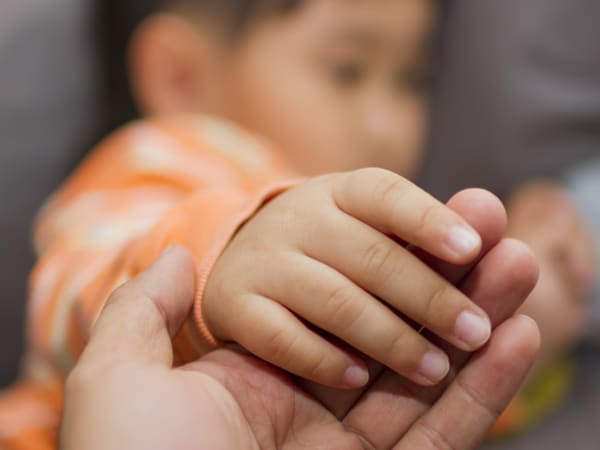
Policy Framework
Policy 7: Provide high-quality legal representation as early as possible and throughout the entire legal process
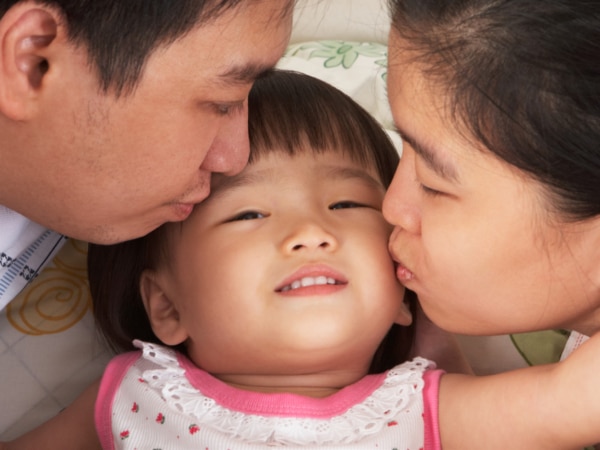
Legal Representation
States should provide high-quality legal representation as early as possible and throughout the entire legal process to improve the chances of better outcomes for families. In many states, access to representation by an attorney for children and parents is not guaranteed, and the quality of and point in the process when legal services are made available can vary significantly. This has been shown to create worse outcomes for children including increased lengths of stay in out-of-home care and lower levels of engagement of parents in their child’s case, reducing their involvement in case planning, services, and court hearings.
HB 2012 included $750k in the state budget for a pilot program for three counties to have high-quality legal representation for children and families impacted by the child welfare system.
SB 5950 funded a pilot in three counties to provide legal representation to pregnant parents and parents of newborns at risk of removal – before a petition has been filed – with the goal of preventing family separation. The Office of Public Defense runs this pilot and hopes to expand the program to additional counties.
Parent and Peer Support
Parent peer support can help parents who are involved in the child welfare system to understand complex legal rules, access and understand available services, and feel less isolated and confused by a complex and traumatizing process. Peer support can increase parent engagement, including greater involvement in planning and decision-making in their child’s welfare case, which can lead to better outcomes for children.
Policy Framework
Policy 11: Create a network of family support partners and mentors to help parents successfully navigate the child welfare and court processes

"SB 3094 highlights the vital role of peer support specialists in mental and behavioral health, recognizing their ability to improve outcomes such as reduced hospital admissions and stronger community support. As a parent with lived experience in the child welfare system and overcoming substance use, I’ve seen firsthand the power of peer support. In my role as a Makua Ally at EPIC ‘Ohana and Parent Leader with Safe Babies, I provide guidance that fosters healing, resilience, and self-advocacy for parents going through similar experiences.
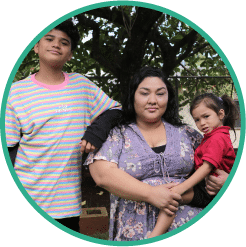
By focusing on trauma-informed practices and sustainable funding, this new working group will help peer support specialists significantly impact families navigating systems like child welfare, juvenile justice, and mental health. This initiative will elevate peer support to a recognized and funded part of care. Safe Babies exemplifies SB 3094’s vision, where parents use their experiences to help others, improving outcomes for children and families."
Kimberly Nabarro, Parent Leader, Safe Babies
Policy Framework
Section 1: Create a child and family well-being system that helps all families thrive
Section 2: Infuse family strengthening, child development, and parent voice into child welfare systems

Safe Babies Courts
Last but certainly not least, some states took action around Safe Babies courts, which are collaborative, team-based approaches that apply the science of early childhood development to meet the urgent needs of infants and toddlers in the child welfare system. These courts emphasize strengthening families and implementing practices that improve outcomes for families of very young children and prevent future court involvement. At least two new states established Safe Babies-aligned courts legislatively and four continue to invest state dollars in their programs. This is a big win for sustainably supporting the transformation of trauma-informed courts that serve the urgent needs of babies and their families.
- Indiana and North Carolina established Safe Babies courts through legislation. Last year, North Carolina launched a three-year pilot program to implement the new courts in five sites.
- States like Florida, South Carolina, Tennessee, and Washington continue to include funding for Safe Babies courts in their state budgets.
“Safe Babies Court is an innovative program that aims to reduce the time children spend in foster care by improving permanency outcomes for children. The program targets children from infancy to three years of age, who are in the child welfare system, and seeks to expedite and enhance the services offered to families in order to more swiftly achieve the goal of permanency for the child. Through expedited access to intensive support services and increased court oversight, children who are a part of Safe Babies Court exit the foster care system 8 months earlier than those in traditional child welfare."
Chief Justice John W. Kittredge, South Carolina
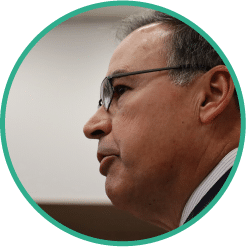
AP Photo/James Pollard
Connect with us to create stronger, healthier families in your state.
The Safe Babies Policy Team provides research, tools and tailored support for state policy efforts that can strengthen families facing challenges like poverty, housing instability, substance use and mental health concerns.
